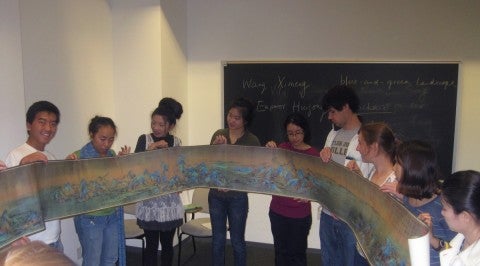“Geist in the Machine: The Curious Humanism of Classical Film Theory”
"All the arts are based on the presence of man,” writes André Bazin, “only photography derives an advantage from his absence.” The emphasis on the non-human aspects of technological media has a long tradition that dates back well before Bazin and has only been reinforced by the anti- and post-humanist strands of more contemporary media theory. By contrast, this talk proposes that film theory has always grappled with the tension between the medium’s technological underpinnings and its persistent human dimensions. Attempting to reconcile concepts drawn from aesthetic philosophy and the humanist canon of Bildung with their fascination for the tempo, techniques, and telos of the new medium, classical film theorists came to think of film as a form of “kurbelndes Bewusstsein” (Balazs) – a cyborganic amalgam of the machinic and the human. Drawing on Rudolf Arnheim, Béla Balázs, Walter Benjamin, Siegfried Kracauer, Hugo Münsterberg, and other early commentators on the promise of cinema, this talk explores the non-synchronous persistence of “man” in early attempts to theorize the technological medium of film: what would it mean to read classical film theory as a form of media anthropology?
------------------------------
Johannes von Moltke is Professor of Film, TV & Media and Germanic Languages and Literatures at the University of Michigan. His work addresses questions of media, culture, and identity as they arise in the history of German Cinema, in Critical Theory, and in Cultural Studies. Most recently, he has been researching the media and identity politics of the New Right. Johannes von Moltke is the past president of the German Studies Association, and the author, among others, of "No Place Like Home: Locations of Heimat in German Cinema" (2005; winner of the MLA Scaglione Prize) and of "The Curious Humanist: Siegfried Kracauer in America" (2016).

